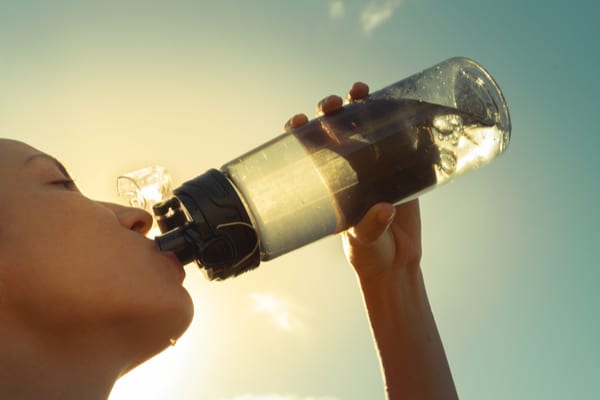 Here’s How You should REALLY Rehydrate for Your Workouts
Here’s How You should REALLY Rehydrate for Your Workouts
It’s summer and the heat is on. That’s why it’s more important than ever to consume the right amount of fluids and know the risks of dehydration when you are considering what to drink during a workout. After all, more than 60% of your body is made up of water, and you can lose quite a bit of fluids through sweat and evaporation when you work out. Drinking water not only quenches your thirst, it helps your joints and body tissues function, regulates body temperature, and transports nutrients.
Here are Health magazine’s tips for a Smart Post-Workout Rehydration Plan.
1. Choose the Right Beverage
The simplest solution is sometimes the best, and that’s true when choosing a workout beverage. “If you’re an average person, then water after a workout is just fine,” Nancy Clark, RD, a sports nutritionist and author of “Nancy Clark’s Sports Nutrition Guide Book,” told Health.
Opt for chocolate milk if your workout is more intense and you spend more than three hours at a time doing it. Chocolate milk has sodium and calcium, which you lose when you sweat. It also has carbohydrates to refuel and give you energy. The protein helps to repair any cell or tissue damage. Note: Drinking milk during a workout can make you feel sluggish, so chocolate milk may make for a better post-workout drink.
Sports drinks, coconut water, or other beverages are fine if you do not like milk or water (just make sure you monitor the ingredients and sugar content). You can also replenish electrolytes, or minerals that balance the water in your body and the pH (acidity) of your blood through foods. Examples include avocados, bananas, orange juice, and tofu.
2. Consume the Right Amount
There is no set amount of water that you should consume during exercise. Clark advised that you “drink to thirst.”
There are ways to calculate your sweat rate. You’ll need to weigh yourself before and after you workout and do a few calculations. Clark says that you should drink about 8 ounces of water every 15 minutes if you lose a quart of sweat in an hour. A good rule of thumb is to drink 4-8 ounces every 15-20 minutes during your workout if you want to skip the math and tend to sweat a lot.
3. Be Careful Not To Drink Too Much
It’s possible to drink too many fluids, but it’s uncommon. It’s more of a risk during marathons and triathlons. Athletes who consume a lot of fluids (even sports drinks) but not enough sodium can develop a life-threatening condition called hyponatremia.
Hyponatremia symptoms include:
- Agitation
- Confusion
- Fatigue
- Headache
- Hypotension (low blood pressure)
- Muscle cramps, twitching, or weakness
- Nausea or vomiting
- Seizures or coma
4. Drink Before and During Exercise
Clark recommended drinking fluids before you even begin to exercise, especially if you are doing a workout that requires a lot of stamina. “You need to start drinking about 1.5-2 hours before running a marathon,” said Clark.
Drinking fluids during a workout is also a good idea. “We don’t drink enough during exercise, and that puts you in a hole when you finish, and then you have to rehydrate,” said Clark. “It’s better if you don’t put yourself in that hole in the first place.”
5. Pack in Some Protein and Carbohydrates
Exercising is good for you, but it’s common to incur minor cell or tissue damage after a workout. Proteins can help repair any damage, so rehydrate with a protein-rich drink after an intense workout. You also expend substantial energy when exercising, so “you want about three times more carbohydrates than protein,” says Clark.
This is why many professional athletes swear by chocolate milk as a favorite post-workout fuel and fluid replenisher.
6. Know the Risks of Dehydration
Many complications can result from not drinking enough water. Perhaps one of the most common is fatigue. Your blood gets thicker, and your heart has to work harder if you do not drink enough water, which means you get tired.
Other risks of dehydration include:
- Confusion
- Fainting
- Not urinating
- Shock
- Tachycardia (rapid heartbeat)
- Quick breathing
The Bottom Line
Exercise has many benefits, but losing hydration is one of the side effects. It’s essential to keep hydrated all of the time, especially when you are exercising. Proper fluid replenishment is the key to preventing dehydration. Tips such as how much, when, and what fluids to bring along should help you feel your best when exercising.
—
Photo Credit: KieferPix / Shutterstock.com






